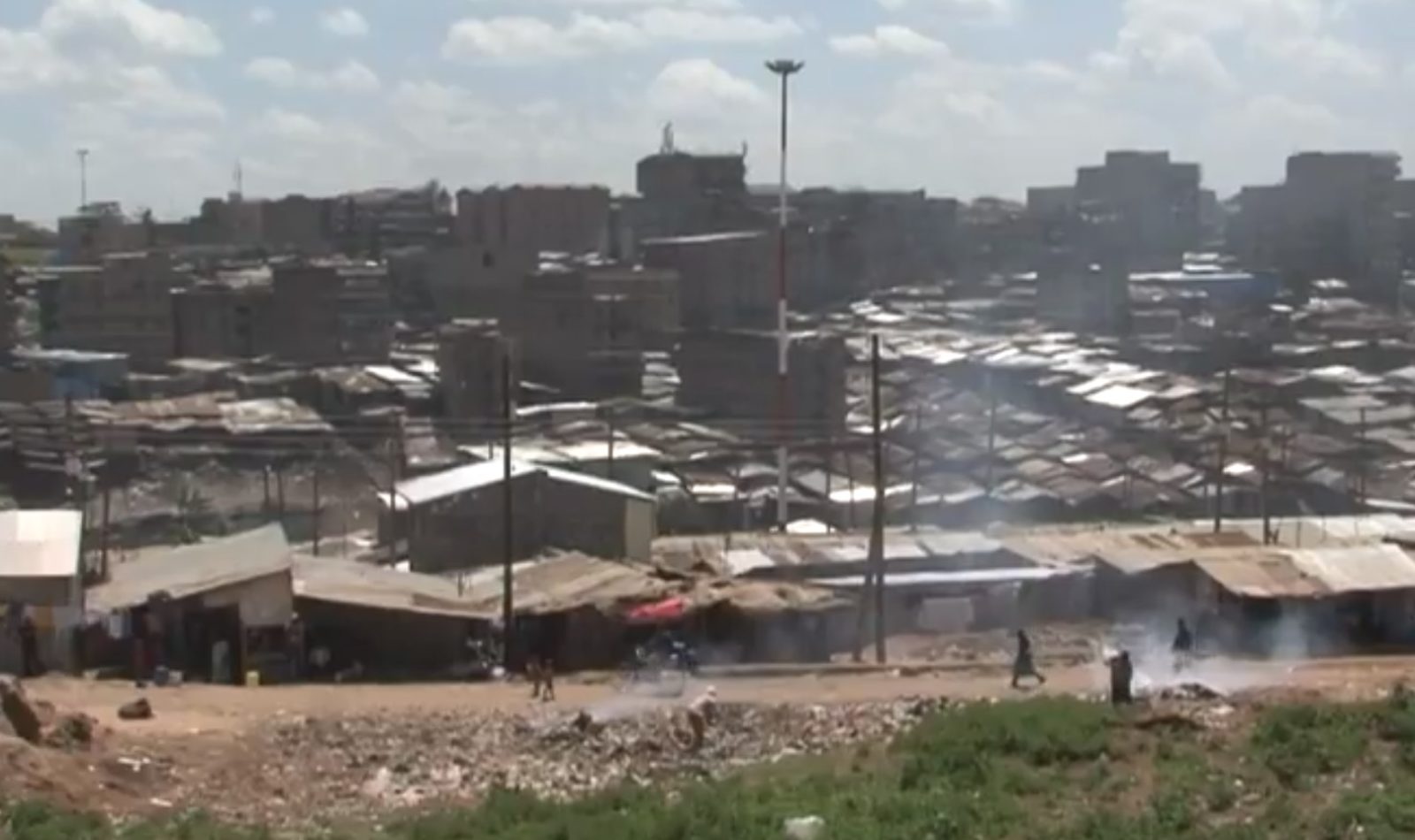JEFFREY BROWN: And now to Kenya and a story about helping the poorest of the poor find homes and hope.
Special correspondent Fred de Sam Lazaro reports.
FRED DE SAM LAZARO: In the shadow of one of Africa’s most modern cities, the sprawl of slums. Almost two million of Nairobi’s three million residents are jammed into just 5 percent of the land.
They have come from the country’s rural areas. Tens of thousands have poured in from neighboring Somalia. And most ended up in slums like Mathare, desperate, unsafe, unsanitary places that lack the most basic amenities. Poverty is so entrenched that families have lived here for two, even three generations.
JACQUELINE NOVOGRATZ, CEO, Acumen Fund: So beautiful.
FRED DE SAM LAZARO: That was the case with Jane Ngoiri, one of a small, but promising community of former slum dwellers who found a way to escape.
Ngoiri showed Jacqueline Novogratz around her new home recently. Novogratz heads the New York-based Acumen Fund, which invests private capital in entrepreneurial projects to help the poor, like the community where Ngoiri lives.
JACQUELINE NOVOGRATZ: I love the color. This is so great, freshwater, clean.
JANE NGOIRI, Kenya: Freshwater, clean. Beans, spinach, onions. There are beans.
FRED DE SAM LAZARO: A third-generation slum dweller, Jane Ngoiri has running water inside her home for the first time in her life.
JANE NGOIRI: Then I open the top, no struggling.
JACQUELINE NOVOGRATZ: No struggling. No buckets outdoors.
JANE NGOIRI: Yes.
I have no stress. I have a kitchen. If I want to eat, well, I can manage. So, for stress, I don’t have.
FRED DE SAM LAZARO: Ngoiri, who is HIV-positive, used to be a prostitute, but sewing classes opened up a whole new world. She began buying up old clothes to recycle into children’s dresses that she now sells.
JACQUELINE NOVOGRATZ: This is beautiful.
FRED DE SAM LAZARO: Even with a stable and increasing income, buying a home is normally out of the question for someone like Jane Ngoiri.
JACQUELINE NOVOGRATZ: It’s very difficult to get any access to bank credit, as Jane, for instance, HIV-positive, ex-prostitute who does informal tailoring and lives in Mathare with no legal address, not exactly your perfect candidate for a bank.
FRED DE SAM LAZARO: So Jane Ngoiri turned to a micro-finance group called Jamii Bora, which gives housing loans to low-income people. They must demonstrate the ability to handle credit and save money regularly, as Ngoiri did by saving for a down payment and paying back a sewing machine loan.
Impressed by its sound lending practices, Novogratz decided to invest $250,000 Acumen Fund dollars in Jamii Bora.
JACQUELINE NOVOGRATZ: Jamii Bora is extraordinary in that it is completely based in the community. Jamii Bora now has people with seven, eight years of credit experience who are repaying on a regular basis, who buy — using incrementally larger loans, have increased their businesses to the point where they are making four or five or six dollars a day, and where they can afford to buy a house, if you can structure the mortgage for a long enough time so that the monthly payments are equal to or less than the monthly payments that people were making in the slums.
FRED DE SAM LAZARO: In other words, by stretching out the length of the mortgage, Jane Ngoiri pays the same here for her house as she did for renting one room in the Mathare slum. She saved for five years to make the down payment of 10 percent.
Her home is in the suburb of Kaputei, a new development of affordable, ecologically friendly homes that Jamii Bora built from scratch. Community members are helped by some engineering experts, but they do much of the building themselves. They even make the bricks and roof tiles here.
MAN: This is our new town, the general layout plan. What we have, we have a composite of eight neighborhoods. And, in between, we will have our light industry, our markets, our police stations, and all other social amenities.
FRED DE SAM LAZARO: So far, they have built 700 homes.
For all its successes, the town has far to go. The local economy is not yet able to sustain itself. And the road to markets in Nairobi is in bad shape. They hope such services and development will eventually come, especially if the government decides to help.
Novogratz sees Kaputei as a model for housing developments worldwide, one that can be scaled up to serve many more than the 2,000 families planned here. But, to her, it is a reminder of another critical element in helping the poor.
JACQUELINE NOVOGRATZ: We need hope in the world. And that you can move people from Mathare to houses like that, that are cheerful and airy, with bathrooms, and have those sunflowers standing right there, to me, was almost a sign of, you have just got to keep going, and that we scale these, we have the numbers, but don’t forget the hope, because we need that in the world, too.
FRED DE SAM LAZARO: Jane herself is full of hope for the next generation.
JANE NGOIRI: Now my first one, she is in high school. She’s in the fourth year. She will complete her high school in this year. So, she says she would come — she would like to become a doctor, a surgeon. And I hope she will.
FRED DE SAM LAZARO: And perhaps the most hopeful sign that housing developments like this can work is that, last year, Jamii Bora paid back its entire loan to the Acumen Fund.
The Acumen Fund
Correspondent Fred de Sam Lazaro reports from Kenya on new efforts to help poor residents of Nairobi’s crowded, unsanitary slums find adequate housing through entrepreneurship and microfinancing.
